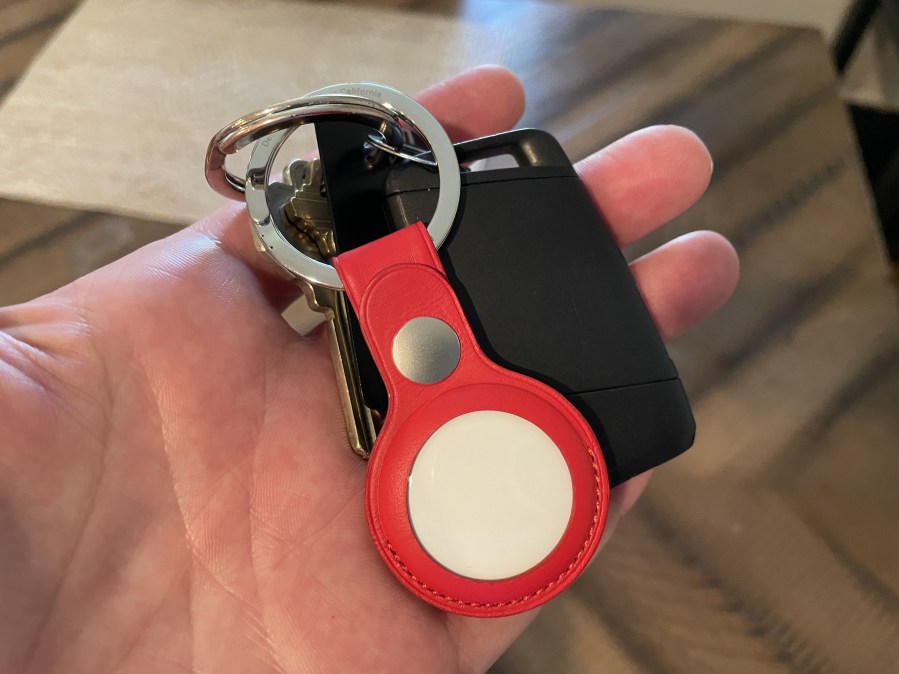Apple’s $29 AirTag might just be the best tracking device ever invented. That’s good for your stuff, not so good for people.
These tiny little tags will likely help many millions of people around the world find their keys, backpacks, lost luggage and more. But their good natured tracking could also easily be exploited in ways we haven’t even thought of yet.
Follow Rich DeMuro on Instagram for more tech news, tips and tricks.
For starters, the AirTag is a small device that contains a user replaceable battery, which Apple says will typically last about a year.
You can link up to 16 of them to one Apple ID. The process is super simple: just hold it next to an iPhone and give it a name.

Now, you can see the location of your item on a map using the Find My App.
There are no monthly fees, and although they don’t come with a way to attach themselves to keys or backpacks, there are already lots of accessories to help you do just that.
There are three ways an AirTag can help you find your item.
First, with just a sound. You can ping the device when it’s nearby. The sound is pretty loud and this will probably be enough to help you find the little tag if it’s close by.
If that’s not enough to lead you to it, a “precision finding” feature on the iPhone 11 and 12 can better direct you to the device. Your phone screen can show you roughly how far away it is and even which direction to turn to find it. Again, this works when you’re nearby.
The other way to find an AirTag is to call in the network. The Find My network, which harnesses the power of nearly a billion Apple gadgets around the world. When one of them detects your AirTag, it will anonymously update its location on your Find My App.
Apple says the entire process is private, anonymous and encrypted. I’m sure they did their homework here.
The part where it gets a little tricky is if want to track someone else using an AirTag. Apple knows some will try to do this, so they built in a few safeguards.
When an AirTag is nearby but it’s owner isn’t, your iPhone will notify you of the suspicious tag. Problem is, this requires an iPhone running the latest software. Android users are left out of the mix.
In that case, the AirTag will let out a chirp so you’re aware of it. Problem here is that this notification could take a while to happen. By then, a person with nefarious intentions could already know where you live, work, go to the gym and more.
Bottom line, people will test the limits of these devices, and Apple will learn and update these safeguards as time goes on.
But overall, AirTags have the potential to be a really helpful ally against losing all kinds of stuff.
Their power lies in crowdsourcing, simplicity, long battery life and a solid network to locate them.





















